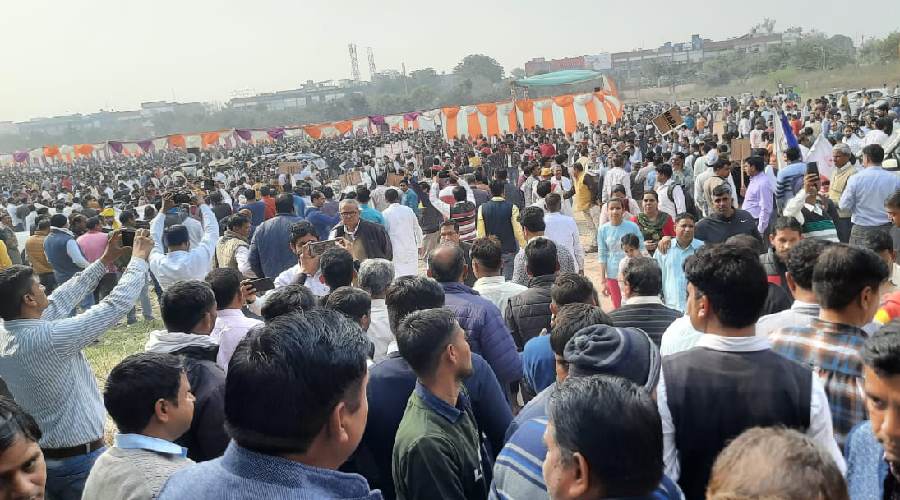The Haryana Police on Sunday used water cannons and tear gas shells to disperse a large group of state government employees holding a demonstration in Panchkula for the restoration of the Old Pension Scheme.
Police took action when the demonstrators, who had gathered on the Panchkula-Chandigarh border, tried to cross over into the Union Territory and march towards the Haryana chief minister's residence and 'gherao' it to press for their demand as reported by PTI.
There was heavy police deployment at the site on the border, police said.
The demonstrators had gathered under the banner of the 'Old Pension Scheme (OPS) Restoration Struggle Committee' and a representative of the panel, while speaking to reporters in Panchkula, claimed that a few employees had suffered injuries during the police action.
"Restoration of OPS is a legitimate demand. Governments of Rajasthan, Punjab and Himachal Pradesh have restored it. The Haryana government has given an excuse that the government will go bankrupt if OPS is restored, which is not correct," the committee's representative said.
According to media reports, the reason given by politicians and economists that the OPS exerts a huge burden on the exchequer doesn't resonate well with employee unions. According to them, an employee after giving 25 to 30 years of service to a department is not entitled to a monthly pension whereas a MP or MLA is entitled to multiple pensions.
What is the Old Pension Scheme?
The Old Pension Scheme versus the New Pension scheme has been a contested issue both within the BJP and the overall political scenario in India. The Old Pension Scheme entitles a government employee with 20 years service to get a monthly pension after retiring from their post. The monthly pension is typically half of the employee's last drawn salary.
The new pension scheme was launched by the BJP-led NDA government under Prime Minister Atal Bihari Vajpayee with effect from April 1, 2004. Under this, the government and the employee chip in 10 and 14 per cent of their salary, respectively, towards a retirement fund. These are funds with a huge cap and are major investors in public and private companies in the stock market.
Except for the headline, this story has not been edited by The Telegraph Online staff and has been published from a syndicated feed.











